|
By: Gianna Savoie, Executive Director, Ocean Media Institute They say there are ocean people and mountain people. As a filmmaker and storyteller, I have chosen to perch myself on the intersection of both. 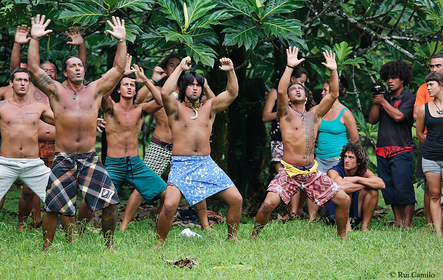 Six years ago, I found myself sitting in an edit room in New York City, finishing a film about wolverines for NATURE and National Geographic when I was invited to Montana State University to teach in their MFA program for Science and Natural History Filmmaking. Just as I was planning my move to the mountain-ringed town of Bozeman, I was offered a job to write and story produce a feature-length documentary about the ocean. The project sounded incredible -- we would be joining a group of 120 South Pacific Islanders who were to sail (and celestially navigate) a fleet of Polynesian voyaging canoes on a two-year, twenty-thousand mile journey across the Pacific in order to carry a message about the ocean’s health to the world. There was absolutely no hesitation in my response. I was on board. Having grown up in the "Ocean State" of Rhode Island, if there was one language I thought I understood well, it was that of the sea. I was excited by her rant through a storm, and soothed by her easy lullaby on a quiet summer night. When I moved to New York, I sought out that familiar voice to cut through the noise. Whether taking a walk across the Brooklyn Bridge, strolling the Boardwalk on Coney Island, or dipping my toes in the Atlantic at Rockaway Beach, the voice of the ocean was a constant companion, one that anchored me. With a move to Montana, I had expected that voice to be hushed. The nearest coastline would now be a thousand miles away. But, at least I would have my film to get my occasional dose of "blue noise." 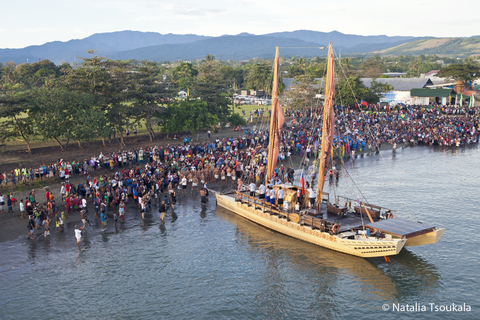 Over the course of the next few years, I kept one foot planted on mountain and the other dipped in ocean, toggling between teaching natural history production in the heart of the Rockies and sailing with the Pacific Voyagers (as they would come to be known) across that great blue universe of water, learning all I could from them. As we made our way across the Pacific from New Zealand to Tahiti, Hawaii to California, Cocos to the Solomon Islands, a story of connection began to emerge, as ancient as it is modern, as sacred as it is scientific. 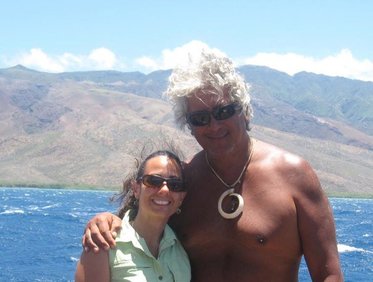 I soon met Tua Pittman, the Master Navigator from the Cook Islands, who would become a main character in our film and one of my dearest friends. He explained what it meant to him to be a citizen – and steward — of the ocean. He taught me about the importance of the canoe in South Pacific culture. “We have a saying: 'He va'a he moku, he moku he va'a,' which means, ‘The canoe is our island, and the island is our canoe.'" He then showed me a large stone set at the base of the mast and explained that it was a mauri stone -- a rock from his home that would accompany them on the entire journey and remind them of the connection between land and sea. As he spoke, I began to understand. The canoe was not simply a vessel that moves people from place to place, but a microcosm of the planet -- a place of limited resources where people must work together and live sustainably in order to survive. And with that, we had our film's title: Our Blue Canoe. Watch the trailer here. 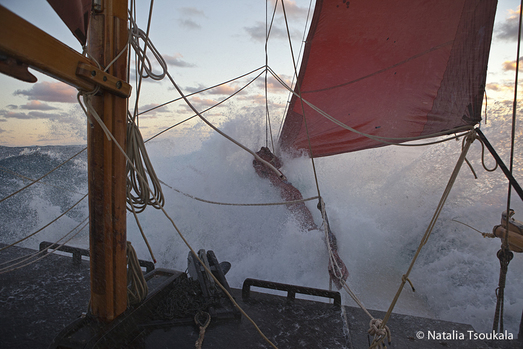 Through the film (which has just been released in the Pacific and with US distribution on its way), we come to relate to the ocean in all its power and fragility via the experience of these intrepid sailors. Together, we revel in the company of Blue whales, and curse the raft of plastic beneath the swells. We brace ourselves through feral storms, and celebrate safe arrivals on remote and wild shores. As our Pacific crewmates open their lives and their culture to us with humor and grace, heartbreak and hope, we discover their journey becomes our journey; their dreams become our dreams – their story becomes woven into ours. And at the heart of their message rests the notion that this ocean is not a barrier that separates our islands, our nations, and continents, but rather the bridge that links us all. And that, perhaps was the most important lesson that I carried back to Bozeman. The ocean is not confined to that blue expanse beyond the land's edge. Even here in my land-locked state, the language of the ocean is communicated in rich, full verse. Though not heard through the pounding of surf or lapping of waves, here in the mountains, the ocean sings in a different register. It pings across the ice of a blue-white glacier and rasps in the whirling diamond dust on a sub-zero morning. The ocean is, in fact, as close as the clouds that fringe the peaks, as common as fresh snowfall on the towering spruce, as much a part of us as our every second breath. 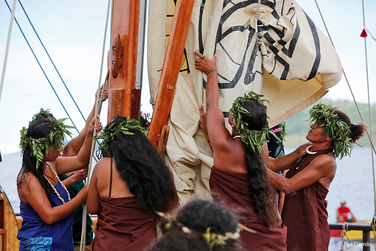 In order to pay forward my experience with the Voyagers, I have since established the non-profit organization, Ocean Media Institute right here in Bozeman, Montana. Bringing together scientists and students, media makers and policy makers, OMI expands the public's understanding of ocean science and conservation through the collaborative creation and distribution of innovative visual media. At the core of OMI's mission is the truth that Ocean in EVERYWHERE. 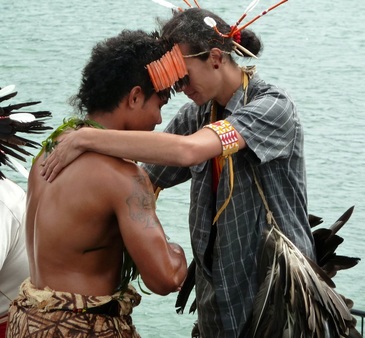 We often think in terms of what separates us: our religion, our color, our land, our language. We tend to frame our lives in the context of “boundaries.” But if there is one thing that I have learned since moving from sea-level to five-thousand feet, it’s that nothing is truly isolated. Everything is interconnected, interdependent. Mountain needs Ocean as bone needs blood. As modern society needs ancient wisdom. As stories need hearts to be heard. So, in that spirit of connection, I invite you on this World Oceans Day to think deeply about YOUR relationship to our blue planet and celebrate it, no matter where you find yourself -- from coastline to ridgeline. You are Ocean. oceanmediainstitute.org
2 Comments
|
Archives
March 2024
Categories
All
|
Contact UsJackson Wild
240 S. Glenwood, Suite 102 PO Box 3940 Jackson, WY 83001 307-200-3286 info@jacksonwild.org |

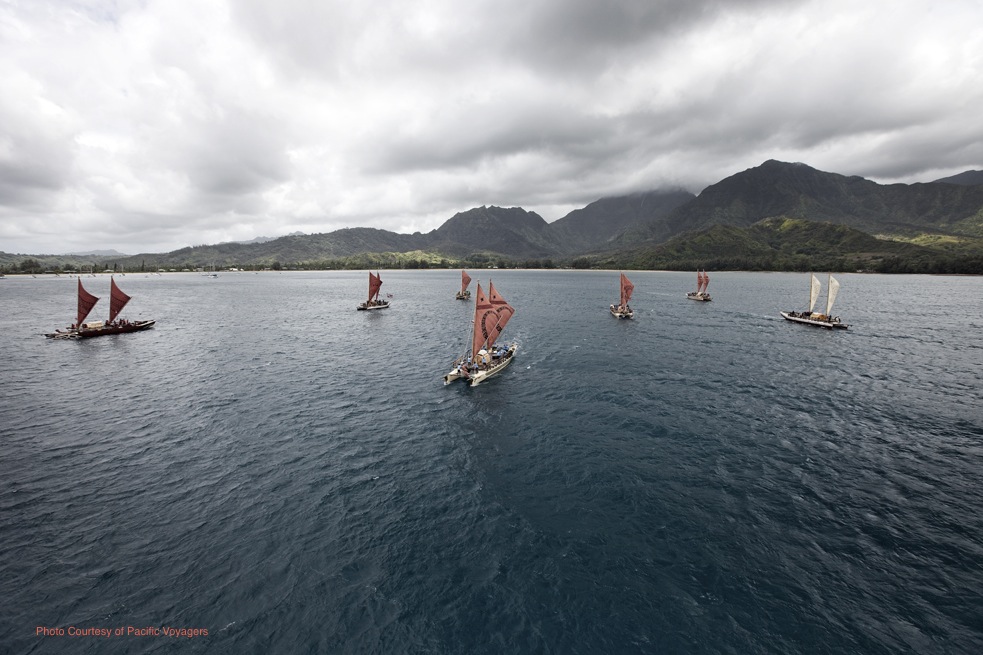
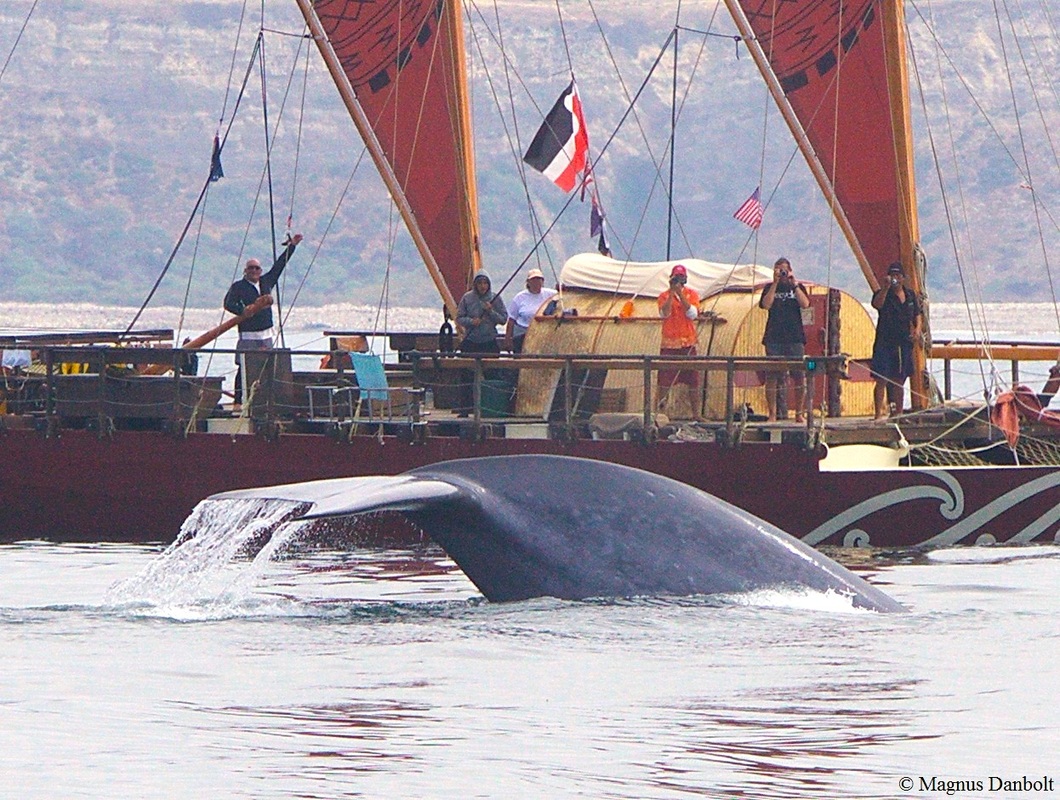
 RSS Feed
RSS Feed